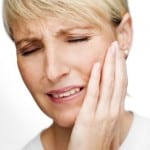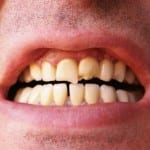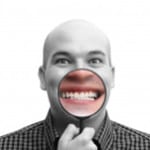 Do you wake up with unexplained headaches or pains in your jaw? Are you struggling to sleep properly? Do your teeth feel sensitive or weak? If so, you may be suffering with bruxism. Bruxism is the medical name for tooth grinding, a common problem that can cause damage to the teeth and contribute to symptoms of temporomandibular joint disorder (TMJ disorder).
Do you wake up with unexplained headaches or pains in your jaw? Are you struggling to sleep properly? Do your teeth feel sensitive or weak? If so, you may be suffering with bruxism. Bruxism is the medical name for tooth grinding, a common problem that can cause damage to the teeth and contribute to symptoms of temporomandibular joint disorder (TMJ disorder).
What causes bruxism?
Sometimes the causes of bruxism may not be clear, but it is often linked to feeling stressed or anxious. Other possible causes include loose crowns and fillings and orthodontic issues that affect the way the upper and lower arches of teeth sit together. This is known as the bite.
If you grind your teeth on a regular basis, this can cause damage to your enamel and increase the risk of headaches, jaw pain and stiffness in the jaw.
How we can help you battle bruxism
If you struggle with symptoms or have been told that you grind your teeth during the night, we can help. Before we decide upon an appropriate course of action, we will examine your mouth to check for possible causes and problems such as loose fillings or misalignment. We can repair or replace damaged restorations or recommend suitable orthodontic treatment options to improve tooth alignment. If there are no clear underlying causes, we can provide a custom-made bite guard, which is a device that sits in the mouth to prevent the top and bottom sets of teeth clashing against each other. Using a bite guards help to reduce tension in the facial muscles and protects your teeth. As it is custom-made, you should find it very comfortable, so it shouldn’t affect your ability to sleep.
If you would like to find out more about treatments for bruxism, don’t hesitate to get in touch.















